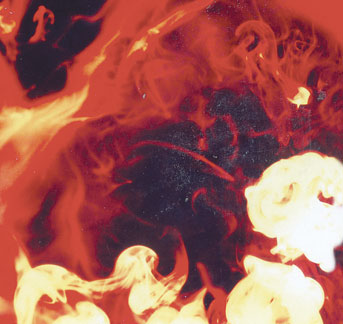Verdi on fire at the Royal Festival Hall
by Gwen Herat
I always maintain that I am no opera fan. In fact, some have driven
me up the wall. But when its The Requiem by Verdi no one can simply
resist its calling, not because one is a die-hard music lover but for
its celestial immortal power. I think it appeals more to Christians
because of its hypnotic spiritual rush that lay in the score. The
awesome precision unleashed upon emotional power is never found or
hardly found elsewhere.
So, that brought me to a front-row seat at the Royal Festival Hall.
It happened last month at the Southbank Centre where the Philharmonia
Orchestra proudly presented Verdi Requiem in celebration of the
composer's bicentenary.
The least erudite among past and present composers, Verdi creates
unprecedented impact on conductors who when they perform him, feel
elated in the height of powers and it was no exception with Danielle
Gatti who took over Verdi in a sensational presentation of the
composer's Requiem.

The passionate score with an all-star cast of soloists joined by the
full force of the Philharmonia Chorus called upon every device in his
operatic armoury to create a thrilling and sensational drama which runs
the whole gamut of human emotions that lacerate the fortissimo of human
eruptions of the ‘Dies Irae’, to the poignant ending of painful
acceptance.
Fiery score
Who else could have composed a fiery score than Verdi?
Written in 1874, Requiem is the only masterpiece that Verdi wrote
with no intention for the stage or as a performing miracle for
orchestration but to raise voice power. It was for church vestments. For
instance, the tenor's ‘Ingemisco’ sometimes sung as a concert item is
heart-felt combined with intensity and stirring theatrically setting is
a long way from the masses of Bach and Mozart.
Its elegiac spiritual moments are the awesome ‘Dies Irae and ‘Tuba
Mirum’ part-scores. It is a chilling piece for a novice or someone who
is not acquainted with Verdi's music.
But if not for Ave Maria (Act 4) of Othello, I too would have
limbered, lost and found my way out of its lyrical beauty that is
differently found in Verdi's Aida. Thanks to my teacher's understanding
of the stress I went through playing Ave Maria. But then The Requiem is
all operatic which years later, tantalised me. Verdi was one of my
teacher's favourite composers and no wonder the patience she had with
her students.
Romantic experience
But to Danielle Gatti, it was challenging and a romantic experience
he took through singers in their different repertoires all blending
magnificently with each other.
I never experienced overlapping or under-tone though I am no expert
at opera singing with a mild aversion for it. Beautiful shades bound
each other as in colour harmony like a heavenly choir of angels singing
from above. That was the impact the Philharmonia Choirs had on the
audience under Getti's baton.
Verdi who is recognised widely as one of the greatest of all
symphonists but his ground-breaking music was slow to gain the
popularity he enjoys today, mainly for the sacred music recognised by
the church.
The magical distillation of his creative genius are unsung even today
at many concert halls but for conductors like Danielle Getti, Verdi is
truly immortal. The Requiem became an archetype for the Romantic
generation with its emotional journey from darkness to light and now, is
resonating strongly in music over the next century and beyond.
The meticulously rising sounds fashioned in sound scapes were both
glorious and spectacular, the perfect backdrop to Verdi's score.
The virtuoso fast-reflexes of binding of voices with soprano in
command, formed a blazing climax to the fiery conducting of Danicle
Getti.
Credits
Krassimira Stoyanova – Soprano
Merie-Nicole Lemiieuz – Contralto
Francesso Meli – Tenor
Carlo Colombara – Bess-beritone
and members of the Philharmonia Chorus
Giuseppe Verdi (1813-1901) the son of a village innkeeper, was the
greatest of all Italian opera composers, involved in church activities
as a small child. He was sent to Busseto by his father to study music
and soon ended up at the Milan Conservatory as a protege. After studies
and through his mastery counterpoint, fugue and canon, he applied to a
post in Maestro Di Musica in Buseeto but was turned down. However, he
was appointed director of the Philharmonic Society.
From this point onwards, there was no stopping his rise to fame which
he performed with utter patience into his nineties.
Shakespeare addict
I think Verdi was influenced by the literati. His composition,
Branani was based on a drama by Victor Hugo.
He was a Shakespeare addict and took over the playwright's popular
character of Falstaff and went on to do more based on Othello, Merry
Wives of Windsor and Macbeth.
He was never an academic nor a theoretician although he was able to
write a perfectly poised fugue. In his early works there are the traces
of Rossini and Belani influence. His last two masterpieces, a comedy and
a tragedy, Verdi had clearly assimilated some of Wagner aura but they
are nothing compared to his previous scores that were pure Italina,
Verdi and stood as a testament to a great composer's ability to develop
and learn the traits that conductor Daniele Gatti discovered in his
dedication to Verdi's bicentenary celebrations at the royal Festival
Hall. Verdi alwaya ignites fire when his scores are played and The
Requiem at the Royal Festival Hall was no different. |


